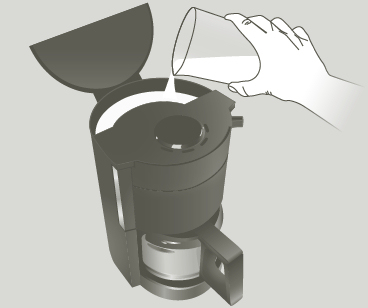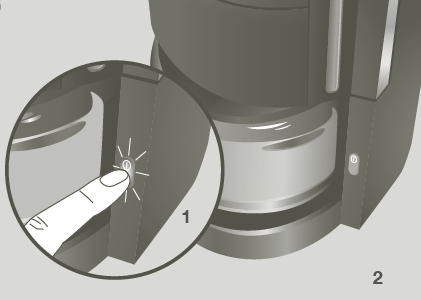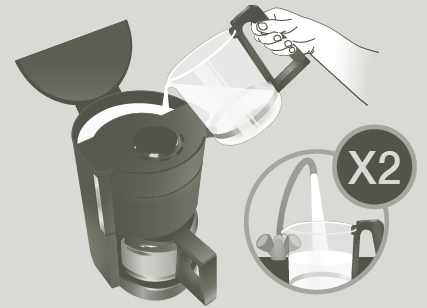MOULINEX THERMO
THERMOEasy to use thermal jar filter coffee maker with front water level indicator and auto-off
Reference : CJ600530
Voir la description du produit
Hot coffee for everyone!
Perfect for making large quantities, the Thermo Coffee keeps your coffee hot for up to 4 hours. It's easy to use, thanks to the pivoting filter holder that enables you to directly access both the water reservoir and the holder itself, and to the visible front water-level indicator. The illuminated O/1 switch allows you to stop the cycle whenever you want, and if you're on the run the anti-drip system allows you to pour yourself a coffee mid-cycle. The Thermo Coffee is all you need to make delicious coffee for everyone.
Voir la description du produit
Technical specifications / comparison
| Number of Cups | 8/12
|
| Carafe | Thermal Inox
|
| Permanent filter | YES
|
| Water level | Window
|
| O/I switch (lighted/Unlighted) | Lighted
|
| Keep warm |
|
| Maximum coffee quantity | 1
L |
| Removable filter holder |
|
| Coffee Dripping | Anti-drip
|
| Voltage | 220-240
V |
| Frequency | 50-60
Hz |
Voir les documents liés
Documentation
Voir les questions les plus fr�quentes
FAQ
Do not use refrigerated or warm water as this might impact the temperature of the beverage.
Use always fresh water and replace the water if system has not been used for more than 2 days.
For cold beverages, use water at ambient temperature, never refrigerated water, and place two or more ice cubes (20g per ice cube) in the cup.
To be noticed that water hardness is the first reason of machine calcification and so it is recommended to descale the machine frequently (every 3months or less according to water hardness).
• Use some descaling solution diluted in half a litre of water or use 25cl of white vinegar in half a litre of water.
• Pour the solution into the water tank (without coffee),

• Start the cycle (without any coffee). After 2 minutes, stop the cycle manually. Leave the coffee maker for an hour,

• Restart the coffee maker to finish the cycle,

• To rinse the machine, run 2 cycles with water but without coffee.

Repeat the complete descaling operation, if necessary.
A plastic insulated carafe should be rinsed under hot water immediately after use.
Never clean the carafe with a dishwashing brush or any other object as this may create hairline cracks that can cause the glass to implode. A brushed steel insulated carafe can easily be cleaned with a dishwashing brush or similar object, even inside.
• The ground coffee is too fine ('Espresso' type ground coffee).
• If you use a permanent filter, do not use a paper filter as well.
• Certain types of paper filter (to make full-bodied coffees) can prolong the time in which it takes for the water to pass through the filter and ultimately cause the water to overflow.
On models with a timer, the clock must be programmed.
The warranty excludes failures due to a lack of regular descaling.
See the services












